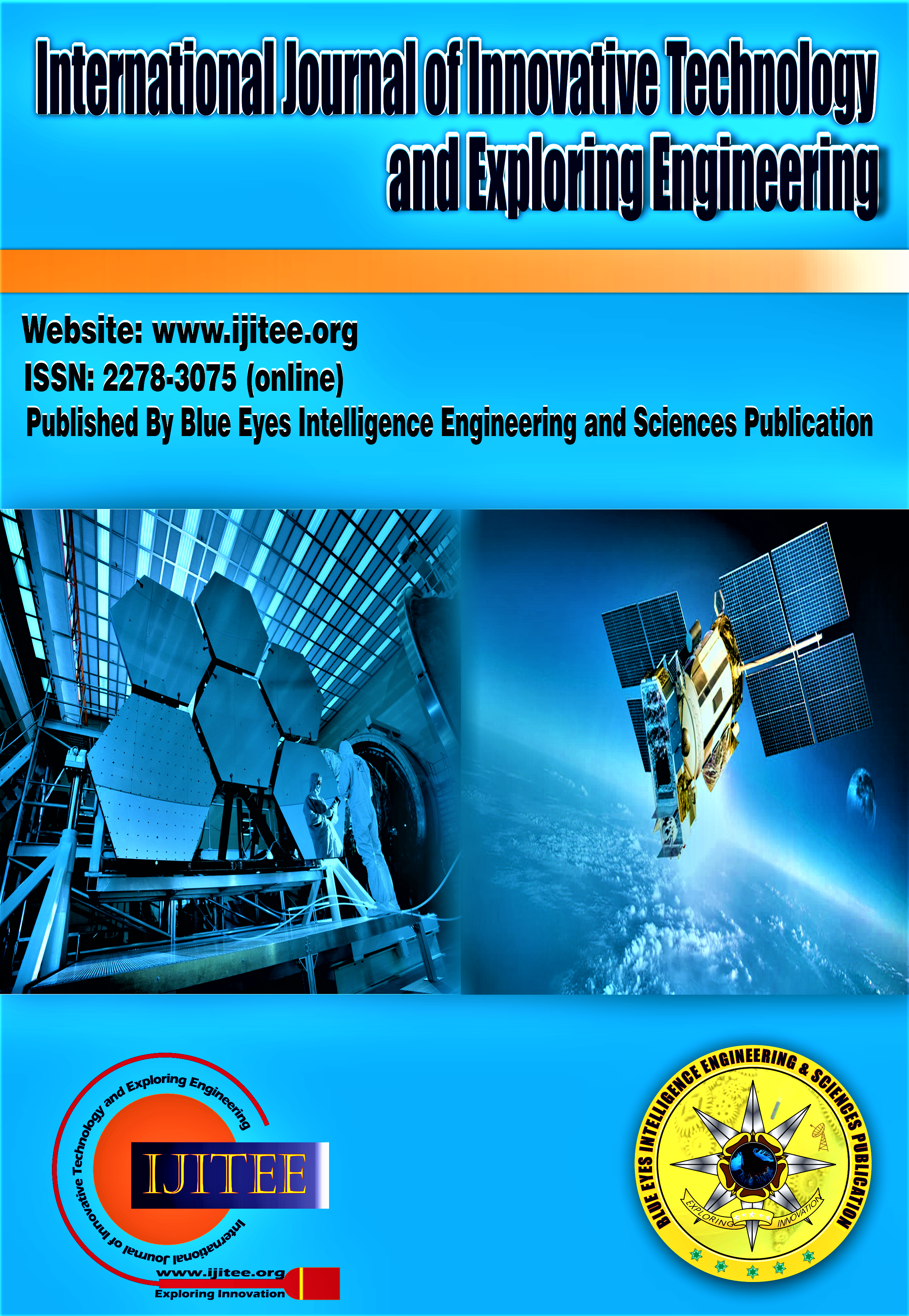Design of Energy Efficient & Sustainable Buildings for ISRO Data Centers Using E-Quest
Main Article Content
Abstract
Saving energy is the same as producing new energy. Sustainable development has elevated the importance of energy performance and energy efficiency. Energy efficiency is a crucial part of sustainability, which includes all sectors of the economy from agriculture to manufacturing to services to infrastructure, including buildings used for business and research activities. Developing countries face unique difficulties in achieving sustainability because they must balance two phenomena that are diametrically opposed to one another: rapid economic growth and long-term prosperity. Commercial, information technology (IT), real estate development and construction are important economic drivers. Energy is, of course, a crucial consideration in these fields. In this research, we propose a design strategy for improving energy efficiency in an ISRO Data center by using sustainable green building technology [1]. This paper discusses the initiatives of ISRO in this direction. As maximum operation & maintenance cost of the buildings is due to electrical energy, this study shows how to design the most energy efficient institutional buildings for IMGEOS (Integrated Multi mission Ground Segment for Earth Observation satellites) of ISRO, Hyderabad. The research work discuses about the strategies / techniques to be considered since the planning & designing stage of the building infrastructure itself. This research gives the complete details of the materials with their detailed technical specifications and the methodology to be adopted, for achieving the required energy efficiency level in the data centers / similar IT infrastructure buildings. The research work also explains the process of finding & selecting the most energy efficient model by using different combination of green building materials, with respect to the base line model of ASHRAE using the e-Quest building simulation software and the results obtained thereof. Thus, this detailed research study investigates the process of designing the energy efficient data center buildings for ISRO in the context of emerging countries.
Downloads
Article Details
Section

This work is licensed under a Creative Commons Attribution-NonCommercial-NoDerivatives 4.0 International License.
How to Cite
References
Sustainable environment: Practices in Indian space Research Organization –A Case Study bu Suja Abraham, T.Balaji & S.Renjith. Indian Journal of Science & technology Vol 10(18),DOI10.17485/IJST/2017/v10i18/99175,May 2017
V. Kotkar, Mr. Apoorva and Hemant Salunkhe. “A REVIEW PAPER ON GREEN BUILDING RESEARCH.” (2017).
Energy efficiency in Architecture: An over view design concepts and architectural interventions. A review paper by Bansal NK, Hauser G, & Minke G.1994. [Google Scholar]
CII Bulletin on Building Insulation from IGBC Green business center, CII-Shorabje Godrej center, Hyderabad, Issue April 2008
T. S. Sigi Kumar, R. Jacob Thomas, N. K. Mohammed Sajid and K. A. Shafi, "Experimental Analysis of Glazed Windows for Green Buildings," 2018 2nd International Conference on Green Energy and Applications (ICGEA), Singapore, 2018, pp. 152-155, doi:10.1109/ICGEA.2018.8356286. https://doi.org/10.1109/ICGEA.2018.8356286
Analysis on Energy-Efficient HVAC System for Buildings. https://rdcu.be/dxVbA
Lamichhane, Saroj, "An e QUEST Based Building Energy Modeling Analysis for Energy Efficiency of Buildings" (2021). Graduate Theses, Dissertations, and Problem Reports. 8266. https://researchrepository.wvu.edu/etd/8266
Harish, V., Kumar, A. (2029). Green Building Energy Simulation and Modeling. United Kingdom: Elsevier Science.
https://www.scribd.com/presentation/454438857/LEED-RATING-SYSTEM-pptx
Harnessing solar power for In-House electrical energy requirements of ISRO by K.Srinivasa Rao, Rajesh Kumar, K.Ashok Kumar, IJITEE, Volume 8,Issue 6,April 2019,retrieval F3747048619/19
D Roy Chowdhury, R V Murthy, Jose P D, ‘’Facilitating Green Building Adoption-An Optimization Based Decision Support Tool,’’ IIMB-WP NO. 485, March-2015[ Link: https://papers.ssrn.com/sol3/papers.cfm?abstract_id=2592873]
Sharma, A. R., & Tanwar, A. S. (2019). Embodied Energies of Conventional and Alternate Building Materials in Residential Sector of Himachal Pradesh. In International Journal of Engineering and Advanced Technology (Vol. 9, Issue 1, pp. 1353–1358). https://doi.org/10.35940/ijeat.a1170.109119
Ravikar, A. A., Joshi, D. A., & Menon, R. (2020). International Scenario of Certifications and Rating Systems for Green Buildings. In International Journal of Innovative Technology and Exploring Engineering (Vol. 9, Issue 3, pp. 1678–1683). https://doi.org/10.35940/ijitee.c8872.019320
Ramesh, G. (2021). Low Carbon Buildings for Sustainable Constructions. In Indian Journal of Structure Engineering (Vol. 1, Issue 2, pp. 1–4). https://doi.org/10.54105/ijse.b8003.111221
Chitransh, A., & Kalyan, B. S. (2021). ARM Microcontroller Based Wireless Industrial Automation System. In Indian Journal of Microprocessors and Microcontroller (Vol. 1, Issue 2, pp. 8–11). https://doi.org/10.54105/ijmm.b1705.091221
Sharma, A., & Chani, P. S. (2020). Energy Efficient Retrofit Model for Unconditioned Buildings Set in the Composite Climatic Region of India. In International Journal of Recent Technology and Engineering (IJRTE) (Vol. 8, Issue 5, pp. 2805–2823). https://doi.org/10.35940/ijrte.c5059.018520





